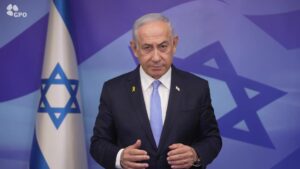Suicide blast kills at least 44 at Pakistan political party meet
Peshawar, Pakistan (AFP):
At least 44 people were killed and more than 100 others wounded Sunday by a suicide bombing at a political gathering of a leading Islamic party in northwest Pakistan, officials said.
The blast targeted the Jamiat Ulema-e-Islam-F (JUI-F) party — a government coalition partner led by an influential firebrand cleric — as hundreds of supporters congregated under a canopy in the town of Khar, near the Afghan border.
“The tent had collapsed on one side, trapping people who were desperately attempting to escape,” said Abdullah Khan, who tried to help the victims.
“There was utter confusion, with human flesh, limbs, and body parts scattered throughout the area, alongside lifeless bodies.”
Sabeeh Ullah, a 24-year-old party supporter who had his arm fractured by the blast, said the scale of injuries was horrifying.
“I found myself lying next to someone who had lost their limbs. The air was filled with the smell of human flesh,” he told AFP by phone.
As the toll kept rising, Riaz Anwar — the health minister for Khyber Pakhtunkhwa province — told AFP late Sunday 44 people had been confirmed killed and over 100 wounded.
“It was a suicide attack, with the bomber detonating himself in close proximity to the stage,” he told AFP.
Pakistani media said there were some 400 people in the tent at the time of the explosion.
Images from the blast site circulating on social media showed bodies strewn around, and volunteers helping blood-soaked victims to ambulances.
No group has claimed responsibility for the attack, but the local chapter of the Islamic State (IS) group has recently carried out attacks against JUI-F.
Last year, IS said it was behind violent attacks against religious scholars affiliated with the party, which has a huge network of mosques and madrassas in the north and west of the country.
The group accuses JUI-F of hypocrisy for being an Islamic group while supporting hostile governments and the military.
The party’s leader, cleric Fazlur Rehman, started political life as a firebrand Islamist hardliner but has softened his public image over the years in a bid to forge alliances with secular parties.
With the ability to mobilise tens of thousands of madrassa students, his party never musters enough support for power on its own, but is usually a key player in any coalition.









